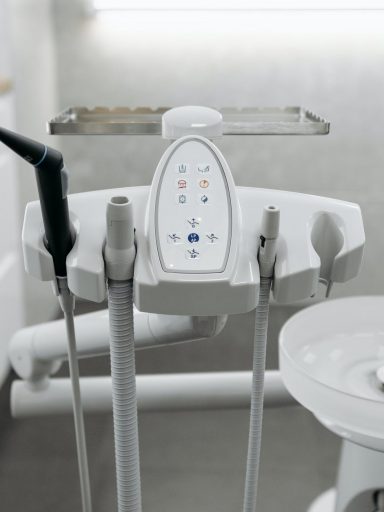Oral cancer may not be the first thing on everyone’s mind, yet being informed about it is crucial for maintaining oral health. This article dives into the essentials of oral cancer, its signs, risk factors, and prevention methods. By understanding the basics, individuals can take proactive steps to ensure early detection and maintain a healthy lifestyle. This straightforward guide is designed to provide clear insights and actionable information that can make a real difference.
What Is Oral Cancer
Oral cancer refers to cancerous growths found in the oral cavity, such as lips, tongue, cheeks, gums, and the roof or floor of the mouth. As a type of head and neck cancer, it poses significant health challenges if not identified early. Uncontrolled cell growth in these regions forms tumors, which may be benign or malignant. Factors like smoking and excessive alcohol consumption are associated with higher risks. Regular check-ups and being aware of any changes in the oral cavity are vital for early detection.
Symptoms to Look For
-
Persistent mouth sores that don’t heal
-
Unaccounted bleeding in the mouth tissue
-
Lumps or thick patches in cheek areas
-
Red or white patches on gums or tongue
-
Challenges in chewing, swallowing, or speaking clearly
If any of these symptoms are present and persist, it’s wise to consult with a healthcare professional. Catching these signs early leads to better management and outcomes.
Causes and Risk Factors for Oral Cancer
The exact reasons for oral cancer are still not completely known. However, there are specific risk factors that can make it more likely for someone to develop this type of cancer. Understanding these risk factors can help people make healthier choices.
Major Risk Factors for Oral Cancer
One of the leading causes of oral cancer is tobacco use. This includes both smoking and chewing tobacco. Here are some important points to consider:
-
Tobacco Use: Whether a person smokes or chews tobacco, it poses a serious threat to oral health and significantly increases the risk of cancer.
-
Heavy Alcohol Consumption: Drinking large amounts of alcohol can compound the harmful effects of tobacco, further increasing cancer risk.
-
Human Papillomavirus (HPV): This virus has been connected to certain types of oral cancer. Awareness and vaccination against HPV can be an important preventive measure.
In addition to the factors mentioned above, several lifestyle choices can help in reducing the risk. Regular dental check-ups can also play a big role in early detection, which can improve treatment outcomes. Eating a balanced diet rich in fruits and vegetables can boost the immune system and may help lower the chances of developing oral cancer.
By adopting a healthy lifestyle and avoiding known risk factors, individuals can take important steps to protect their oral health and reduce their chances of developing oral cancer.
Preventing Oral Cancer
Reducing the risk of oral cancer involves making informed lifestyle choices. Here are some proactive steps individuals can take:
-
Avoid tobacco products, regardless of their form
-
Moderate alcohol consumption
-
Use lip balm with UV protection to guard against sun damage
-
Maintain regular dental appointments for professional evaluations
-
Stay alert to any unusual changes in the mouth region
Regular check-ups are not just about teeth cleaning; they offer an opportunity for early detection of any signs of oral cancer. Dentists can provide examinations that may identify suspicious areas before they become problematic.
Dental Professionals
Dentists play a vital role in the early identification and prevention of oral cancer. Through regular screenings, they can detect abnormalities in the oral cavity that may go unnoticed. Dental experts, such as the best dentist in Palm Coast, can examine for signs like lesions and advise on preventive measures. These healthcare professionals offer guidance on maintaining overall oral health and reducing risks through lifestyle modifications. Their routine checks are essential for catching potential issues early on.
Diagnosis and Treatment Options
Should a healthcare provider suspect oral cancer, diagnostic tests like biopsies confirm the presence of cancerous cells. The treatment depends on the cancer’s stage and location, usually involving a combination of surgery, radiation, and chemotherapy. Systems set in place for comprehensive treatment offer patients a structured approach to managing their condition. Visiting a professional dentist Daytona Beach, FL ensures an informed treatment journey. A well-crafted plan is critical for effectively dealing with oral cancer.
Lifestyle Considerations and Support
Living with an oral cancer diagnosis requires both medical intervention and lifestyle adjustments. Patients benefit from support groups, counseling services, and nutrition consultations to help sustain strength and morale. It’s essential to focus on a balanced diet to maintain energy levels during treatment. Routine follow-ups and monitoring help maintain health and promptly address any complications. With the right support, individuals can navigate their health journey with a sense of control and well-being.
Protecting Yourself Against Oral Cancer
-
Keep up with consistent dental check-ups for early detection
-
Eliminate tobacco use completely
-
Limit alcohol, opting for alternate beverages
-
Use protective lip products against UV radiation
-
Stay informed about any oral or throat changes
Proactive measures reinforce oral health while reducing oral cancer risks. Incorporating these practices into daily life fosters a healthier living environment. Consistent dental visits, complemented by advice from this Deland dentist, play a crucial role in early detection and prevention. With the right awareness and proactive measures, individuals can confidently tackle oral health challenges, investing in their lifelong well-being.
Closing Remarks
Awareness and knowledge about oral cancer can empower individuals to make health-conscious choices. By understanding the underlying risks, recognizing symptoms, and undertaking preventive measures, there’s a tangible decrease in the likelihood of encountering oral cancer.




